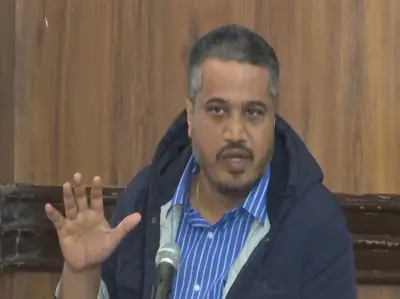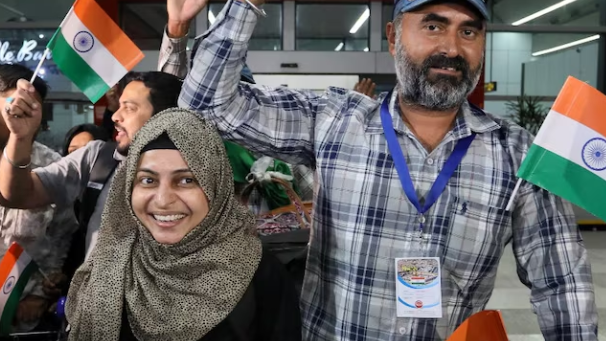

Tehran/New Delhi: As escalating tensions between Iran and Israel created dangerous conditions across the region, 110 Indian nationals touched down in New Delhi Wednesday evening, rescued through Operation Sindhu in what many students described as a miraculous escape from an increasingly volatile situation.The dramatic evacuation mission, coordinated by India's Ministry of External Affairs, successfully extracted students who had been pursuing medical degrees in various Iranian cities, bringing them to safety through a carefully orchestrated route via Armenia.
For the evacuated students, the government's swift intervention felt almost unbelievable. "The government literally evacuated us from our dormitory, from our doors," one grateful student explained upon landing at New Delhi's Indira Gandhi International Airport, still processing the rapid turn of events that brought them from conflict-zone uncertainty to home soil safety.
The operation represents the first successful phase of India's broader mission to extract its citizens from the deteriorating security situation in Iran, where ongoing strikes and military tensions have created an atmosphere of fear and uncertainty, particularly in major population centers.
Sheikh Afsa, among the relieved evacuees, painted a stark picture of conditions they left behind while expressing gratitude for the government's timely response. "We are happy to return here, but we are also worried about our studies. The situation there is bad, and people are scared," she told ANI, capturing the mixed emotions many students experienced upon their return.
The evacuation effort revealed varying degrees of impact across different Iranian cities. A student evacuated from Urmia noted the relative calm in that northwestern city compared to other heavily affected regions. "I am happy that I am back in our country... The Government of India helped a lot; that is why we are back home," the student said, highlighting the government's comprehensive support throughout the rescue process.
However, the situation in Iran's major cities painted a more concerning picture. "We received calls from people in Iran, who said the situation is very critical. They helped us at every step; no one faced any problem, and we are grateful to the central government," another evacuee shared, emphasizing both the deteriorating conditions and the seamless evacuation process.
Despite the successful extraction of 110 nationals, significant concerns remain for Indian students still stranded in Iran's most affected cities. One returnee made an emotional appeal highlighting the urgent need for continued rescue operations: "We thank the Indian Embassy for evacuating us at the right time, but we have one more appeal — that all of our brothers and sisters who are stranded in Isfahan and Tehran be evacuated as soon as possible, as the situation is so critical there."
The plea underscores the selective nature of the current evacuation, with students in Tehran and Isfahan facing more challenging circumstances due to their proximity to conflict hotspots and the intensity of military activities in these strategic locations.
The evacuation has forced students to confront difficult personal decisions, abandoning years of medical education for immediate safety. A fourth-year medical student from Jammu and Kashmir expressed the emotional complexity many face: "We are sad as we have to leave our studies... I hope the war will end soon... I am very thankful to the Indian government."
The student's additional request revealed ongoing challenges even after reaching safety: "We faced no issues till now. But I request our CM to facilitate us so that we can meet our parents as soon as possible," highlighting the bureaucratic hurdles that can complicate family reunions even after successful evacuations.
MEA Spokesperson Randhir Jaiswal provided crucial details about the evacuation's logistics, explaining that students had first crossed into Armenia under Indian mission supervision before departing from Yerevan. This transit strategy through Armenia demonstrates India's diplomatic coordination with regional partners to ensure safe passage for its nationals.
"India accords the highest priority to the safety and security of her nationals abroad," Jaiswal posted on X, reaffirming the government's commitment to citizen welfare in crisis situations.
As Operation Sindhu continues, attention now focuses on the remaining Indian nationals in Tehran, Isfahan, and other affected areas. The successful first phase has established both the operational framework and diplomatic channels necessary for continued evacuations, offering hope to those still awaiting rescue from an increasingly dangerous regional conflict.